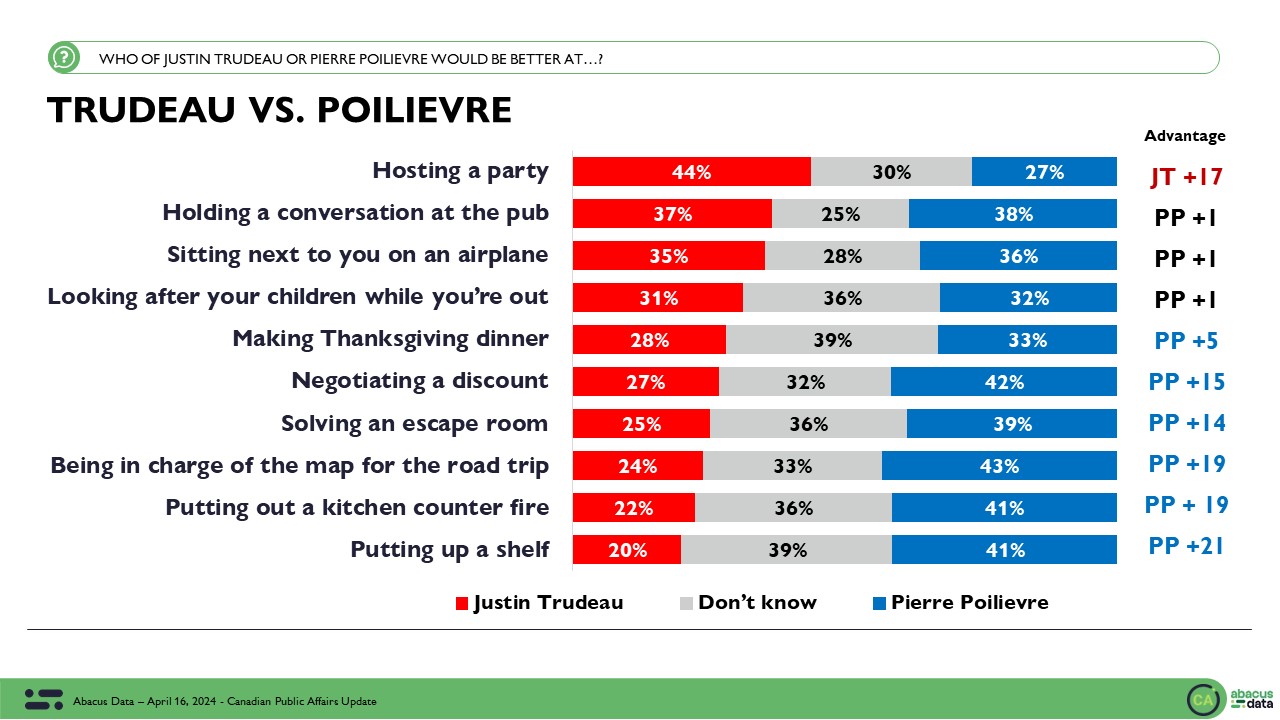What keeps us awake: Top national issues
November 21, 2016

In our latest survey of national opinion, we explored the issues people are concerned about across Canada today.
• One in three (34%) say that economic conditions in general are the most important issue facing Canada today. This is the number one concern of 47% in Alberta, and a much smaller 27% in BC.
• Another 9% say unemployment is their biggest preoccupation. Again, this number is 17% in Alberta, making it the second ranked issue in that province. This means that roughly two out of three (64%) Albertans put the economy and unemployment on the top of the priority list, almost twice as many as do across the country overall (34%).
• Health care ranks as the 2nd most important issue among people over 45, but only ties for 4th among those under 45.
• In BC, housing is the 3rd most important issue. In Ontario, housing is only the 6th most important issue. In the other provinces, less than 1% mention it as the top issue. Across the country, housing garners twice as many mentions as top issue among those under 45 compared to those over that age.
• Immigration is considered the most important issue by 5%, terrorism 2% and foreign policy or defence 1%. Concern about immigration twice as high in Manitoba/Saskatchewan as it is in Ontario.
• The environment/climate change is considered the top issue by 8% nationally. Women and those under 45 put a greater emphasis on this issue than men and older people, but the differences are modest. This issue ranks 5th among men and tied for 4th among women. BC leads in concern on this issue.
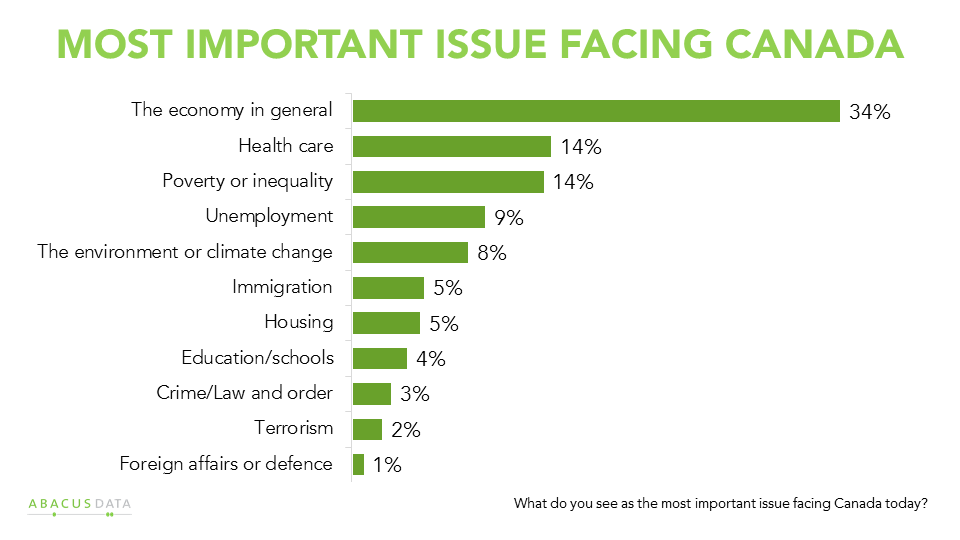
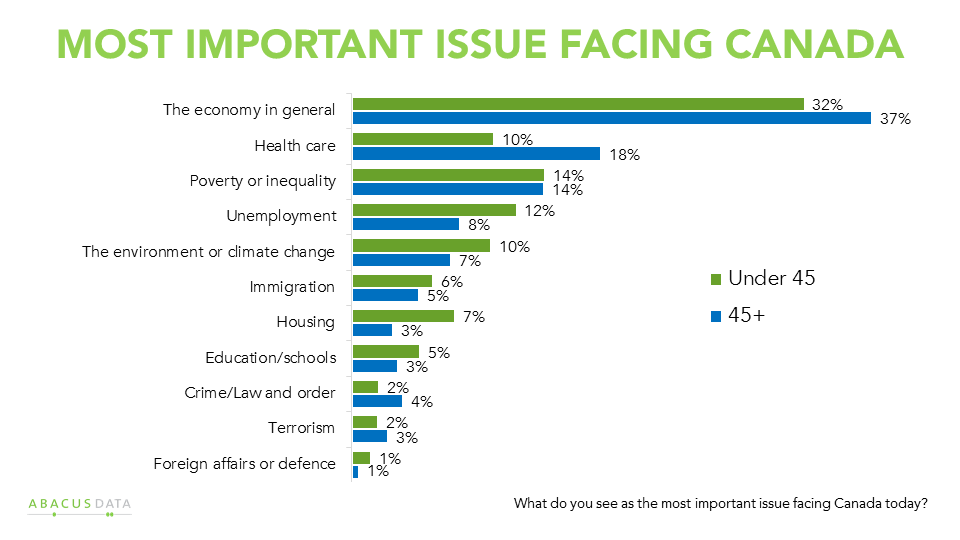

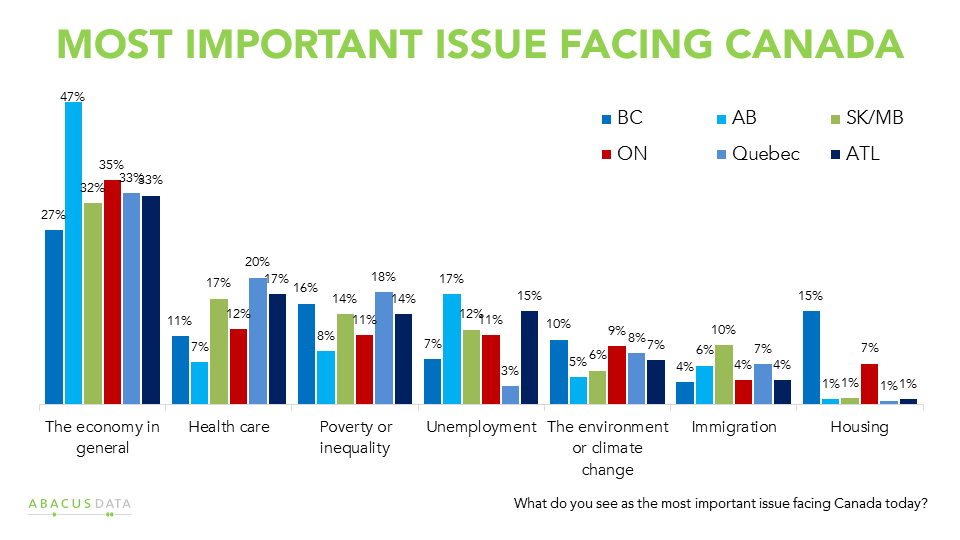
The preoccupations of Canadians vary substantially based on their partisan leanings.
• Among NDP voters, the top 3 mentions, were the economy (27%) poverty/inequality (25%) and the environment/climate change (14%).
• Among Conservatives, the top three were the economy (51%), health care (10%) and unemployment (10%). Immigration was mentioned by just 6%, and terrorism (3%), defence/foreign policy (0%), and law and order (4%) were much farther down the list of top issues. The environment/climate change was mentioned by 1% of Conservative voters.
• Among Liberal supporters, the top three were the economy (38%), health care (18%) poverty/inequality (13%), followed by climate change (9%).
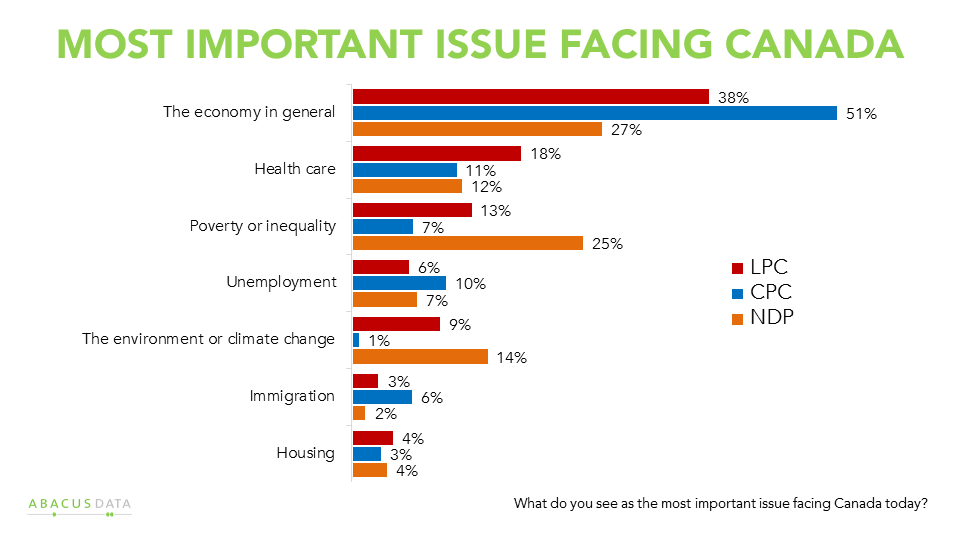
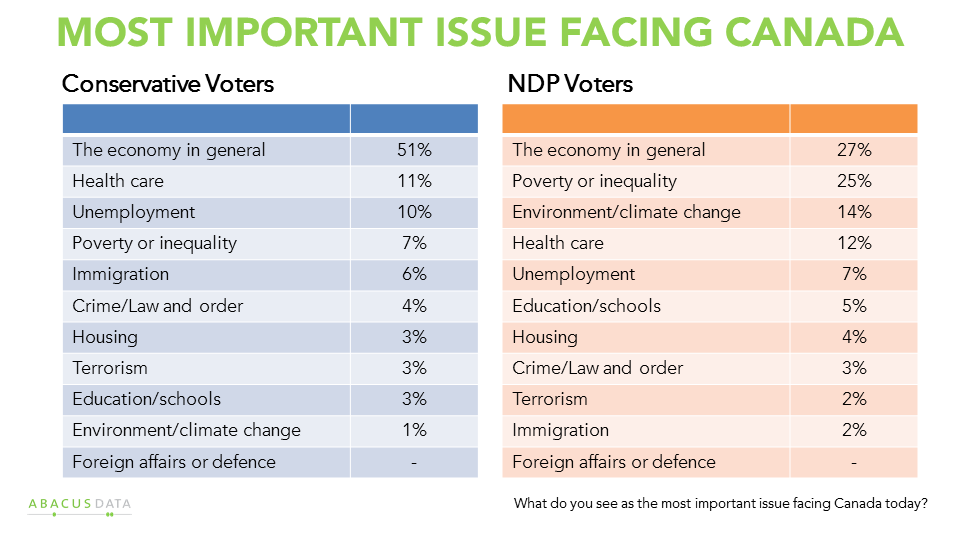
UPSHOT
According to Bruce Anderson:
“The differences in economic and social conditions are really evident when it comes to the preoccupations of people in different demographic groups and regions of the country. Housing is clearly a concern for young people and especially those in BC. The economic pain in Alberta is profoundly evident in these numbers too.
Beyond this, three other things stand out.
One is the wide gulf between Conservatives and others in terms of the urgency they feel about the climate change issue.
The second is that notwithstanding the unsettled global conditions and tensions few Canadians seem highly preoccupied with defense, security, terror or law and order issues – these were a lot more prominent during the years of the Harper administration.
Finally, while screening immigrants has become a major topic of conversation in the CPC leadership race, immigration is far from a major preoccupation across the country.
Conservative voters are twice as likely as Liberals and three times as likely as New Democrats to say it is their top issue, but even at that, only 6% of those who voted Conservative last fall put it at the top of their priority list.”
METHODOLOGY
Our survey was conducted online with 2,200 Canadians aged 18 and over from November 11 to 13, 2016. A random sample of panelists was invited to complete the survey from a large representative panel of over 500,000 Canadians.
The Marketing Research and Intelligence Association policy limits statements about margins of sampling error for most online surveys. The margin of error for a comparable probability-based random sample of 2,200 is +/- 2.1%, 19 times out of 20.
The data were weighted according to census data to ensure that the sample matched Canada’s population according to age, gender, educational attainment, and region. Totals may not add up to 100 due to rounding.
ABACUS DATA INC.
We offer global research capacity with a strong focus on customer service, attention to detail and value-added insight. Our team combines the experience of our Chairman Bruce Anderson, one of Canada’s leading research executives for two decades, with the energy, creativity and research expertise of CEO David Coletto, Ph.D.



